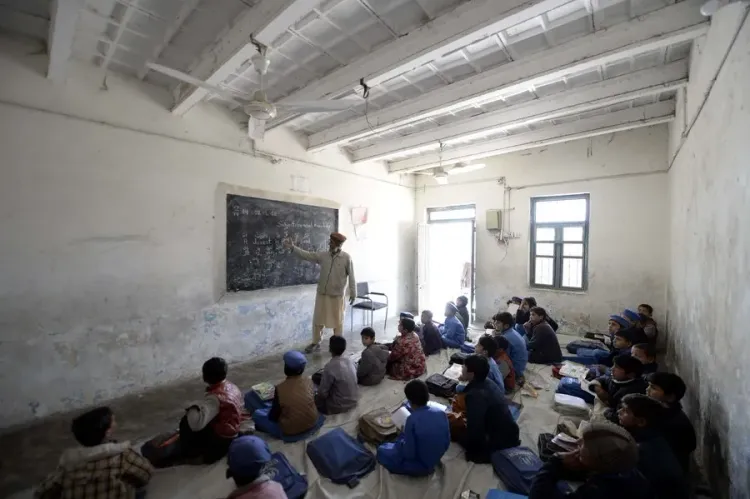Is 3.5 Million Children in Afghanistan Facing Severe Malnutrition?

Synopsis
Key Takeaways
- 3.5 million children in Afghanistan are experiencing severe malnutrition.
- The World Food Programme is actively working to provide food assistance.
- School meals are being distributed to encourage attendance despite economic challenges.
- Malnutrition impacts particularly young children and mothers.
- The humanitarian crisis is worsening with diminishing international aid.
Kabul, Nov 21 (NationPress) The World Food Programme (WFP) has reported that 3.5 million children in Afghanistan are facing severe malnutrition, a situation exacerbated by diminishing aid operations. The organization has raised alarms about the escalating humanitarian crisis, which poses a risk to millions, according to local media on Friday.
In a statement released on X, the WFP highlighted its efforts to assist Afghan children through various food-assistance programs, despite operational hurdles, as noted by Afghanistan's prominent news outlet, Khaama Press.
WFP is actively providing school meals aimed at enhancing children's development and ensuring that vulnerable students remain in classrooms amid ongoing economic hardships. Furthermore, the agency offers nutritional services at health facilities across Afghanistan to combat malnutrition, particularly impacting young children and pregnant or breastfeeding mothers.
Previously, the agency had warned that Afghan women are losing their children due to malnutrition, emphasizing that the onset of winter could significantly worsen food accessibility. Several international organizations have curtailed or halted their operations in Afghanistan because of government interference and restrictions on women's empowerment.
Earlier this month, the United Nations Children’s Fund (UNICEF) reported that one in every five children in Afghanistan is engaged in child labour, as reported by Afghanistan-based Tolo News.
UNICEF spokesperson in Afghanistan, Omidurrahman Fazel, stated, "No matter the circumstances, UNICEF is dedicated to eradicating all forms of child labour. Thus, UNICEF promotes family-centered solutions to this challenge."
Suhel, a child labourer, shared, "Some days, when I seek work, there’s none available, so I must skip school to earn money. If I attend school, I can’t work. This job offers no future, but education does."
Another child worker, Ali Dad, expressed his desire to attend school but felt unable to do so due to financial struggles.









